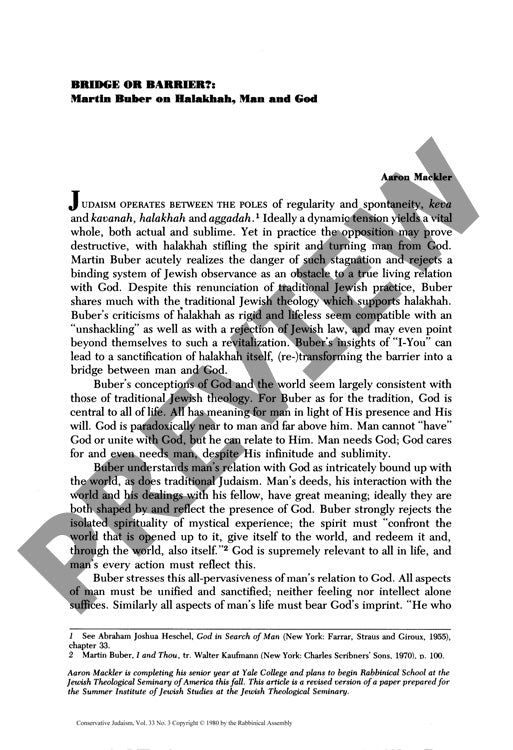Bridge or Barrier Martin Buber on Halakh
Couldn't load pickup availability
Martin Buber's rejection of binding Jewish law (halakhah) appears to contradict his deeply traditional theological views, yet his I-Thou relational philosophy suggests an unexpected path toward reconciliation. Through textual analysis of Buber's correspondence with Franz Rosenzweig and examination of his philosophical works, a more nuanced picture emerges of his complex relationship with Jewish legal tradition. While Buber criticizes halakhah as potentially rigid and spiritually stifling, his core theological assumptions—including beliefs about God's centrality to life, the importance of communal religious identity, and the necessity of sanctifying mundane existence—align closely with traditional Judaism. Comparative analysis of Buber's writings on God, community, and religious practice against traditional Jewish theological frameworks reveals that his I-Thou philosophy could theoretically support halakhah's revitalization as a "bridge" rather than "barrier" between humanity and God. These insights about authentic religious relationship point toward transforming halakhah into a dynamic system that facilitates rather than impedes genuine encounter with the divine, suggesting possibilities for reconciling spontaneous spirituality with structured religious practice.

More Information
-
Physical Description
-
Publication Information
Published 1980
ISBN
-
Publication Credits
Aaron Mackler

